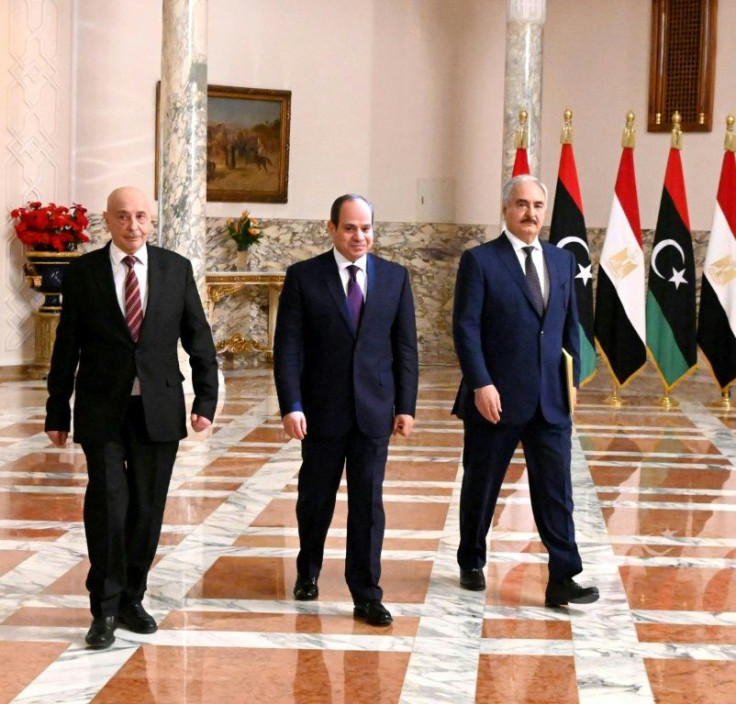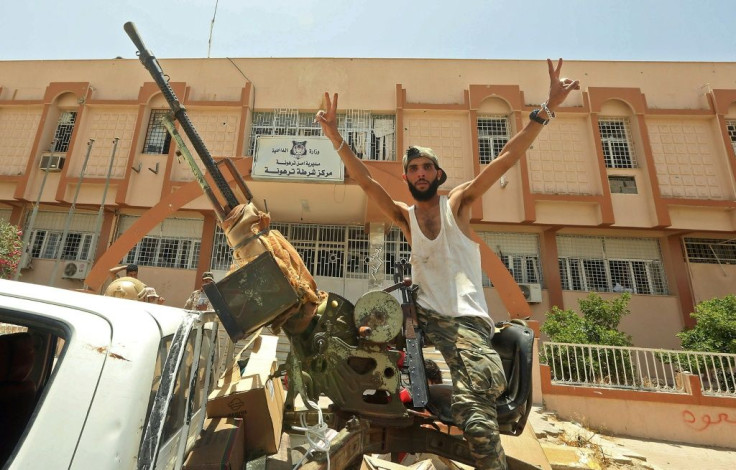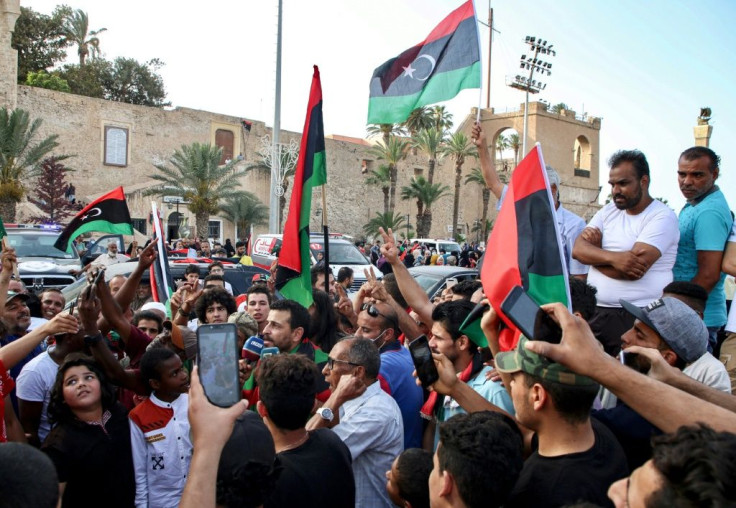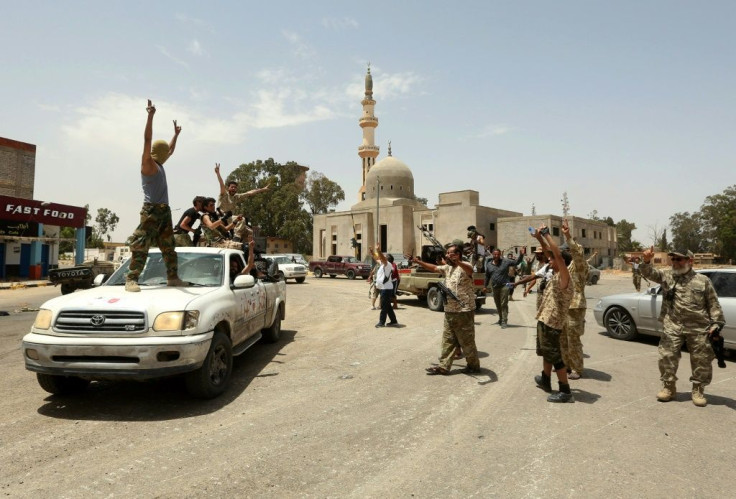Libya's Unity Forces In Battle To Retake Strategic Sirte
Fighters loyal to Libya's UN-recognised government Sunday kept up their counter-offensive against forces of strongman Khalifa Haftar, but fighting stalled on the outskirts of the strategic city of Sirte.
The Mediterranean coastal city -- the home of former dictator Moamer Kadhafi who was ousted and killed in a 2011 NATO-backed uprising -- is also a key gateway to the country's major oil fields in the east, still held by pro-Haftar forces.
The Turkish-backed Government of National Accord (GNA) based in Tripoli has in recent weeks retaken all remaining outposts of western Libya from pro-Haftar loyalists, who had sought to capture the capital in a 14-month offensive.
In Tripoli on Sunday, crowds celebrated the retreat of Haftar forces, with residents flashing the victory sign and waving the national flag from honking cars moving in convoy.

"Despite everything, we persisted and achieved victory, and we will keep on doing so," one of the joyous citizens, Abdel Salam Mohamed, told AFP.
But there were also warnings of acts of bloody retribution following the GNA military gains around Tripoli and the recaptured city of Tarhuna, including reports of looting and the displacement of thousands of residents.
The UN Support Mission in Libya (UNSMIL) said it "remains alarmed by the harm inflicted on the civilian population by the continuing cycle of violence in Libya".
Rights group Amnesty International warned last week that "war crimes and other violations" may have been committed by warring parties near Tripoli, often in retaliation against civilians for their perceived affiliation to one side or another.

Haftar, following his string of military setbacks, was in Cairo Saturday to support a ceasefire proposal made by his key backer, President Abdel Fattah al-Sisi, meant to take effect at 0400 GMT Monday.
The so-called "Cairo declaration" called for the withdrawal of "foreign mercenaries from all Libyan territory, dismantling militias and handing over their weaponry," Sisi said.

But the resurgent GNA has rejected the truce plan and bombarded Sirte, the last major settlement before the traditional boundary between western Libya and the east, Haftar's stronghold.
Mohamad Gnounou, a spokesman for the GNA's forces, declared on Saturday that "we will choose the time and place when" the war ends.
One of the Tripoli demonstrators, Abdallah Faraj, dismissed the latest ceasefire proposal on the basis that Haftar "is signing after he lost the war", pointing out that the strongman had rejected previous truce offers.
On the frontline outside Sirte, Gnounou said, GNA air strikes were targeting enemy positions and "orders have been given to our forces to begin their advance and to systematically attack all rebel positions".

Pro-GNA forces said that in recent clashes they had "neutralised" 10 enemy militia fighters, hit armoured vehicles and shot down a Chinese-made Wing Loong drone.
However, the advance slowed as pro-GNA forces encountered resistance -- mainly heavy artillery and intensified drone and jet strikes, said Emad Badi of think tank the Atlantic Council.
Libya has been in chaos since the fall of Kadhafi, which also opened a new gateway in North Africa for desperate migrants bound for Europe.
Haftar's offensive, which began in April 2019, has resulted in hundreds of deaths and has driven more than 200,000 people from their homes.
Haftar -- a 76-year-old former Kadhafi loyalist turned defector who spent years living in the United States -- has vowed to rule all of Libya, painting his enemies as jihadists and terrorists.
He has been backed by powers including Russia, the United Arab Emirates and neighbouring Egypt with aircraft, high-tech weapons and mercenaries.
But Turkey in recent months stepped up its support for the GNA, sending military advisers, weaponised drones and reportedly also Syrian mercenaries to tip the battlefield balance.
As the Turkish backed GNA forces push on, they will likely encounter "escalation by Haftar's backers," said Badi of the Atlantic Council.
"Turkey and Haftar's allies will negotiate the geographic delimitations of their spheres of influence in central Libya through conflicts which will claim Libyan lives."
Sirte, some 450 kilometres (280 miles) east of the capital, is key for access to Libya's crucial "oil crescent", which has been blockaded by pro-Haftar groups since January, heavily impacting what is virtually the only source of national income.
The Libyan National Oil Company (NOC) deplored "a severe drop" in oil revenues, "estimated at 97 percent compared to April 2019", a sharp drop also due to the huge slump in global oil prices.
"Losses have exceeded five billion dollars," NOC said on Facebook Sunday.
On Sunday the company said, however, that production had resumed at Al-Sharara oil field, the country's largest, 900 kilometres south of Tripoli, which had been shut by Haftar forces.





















